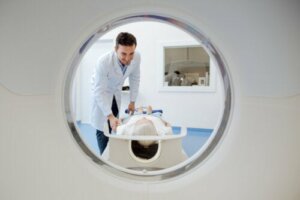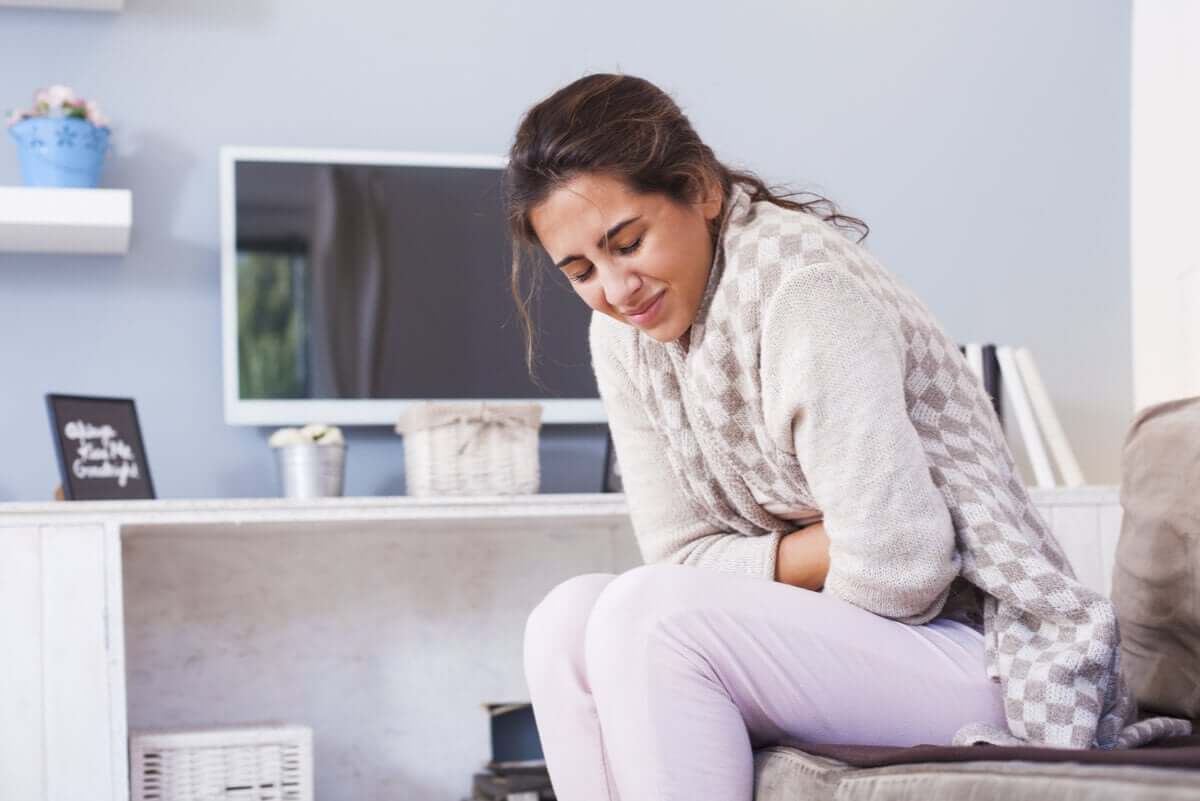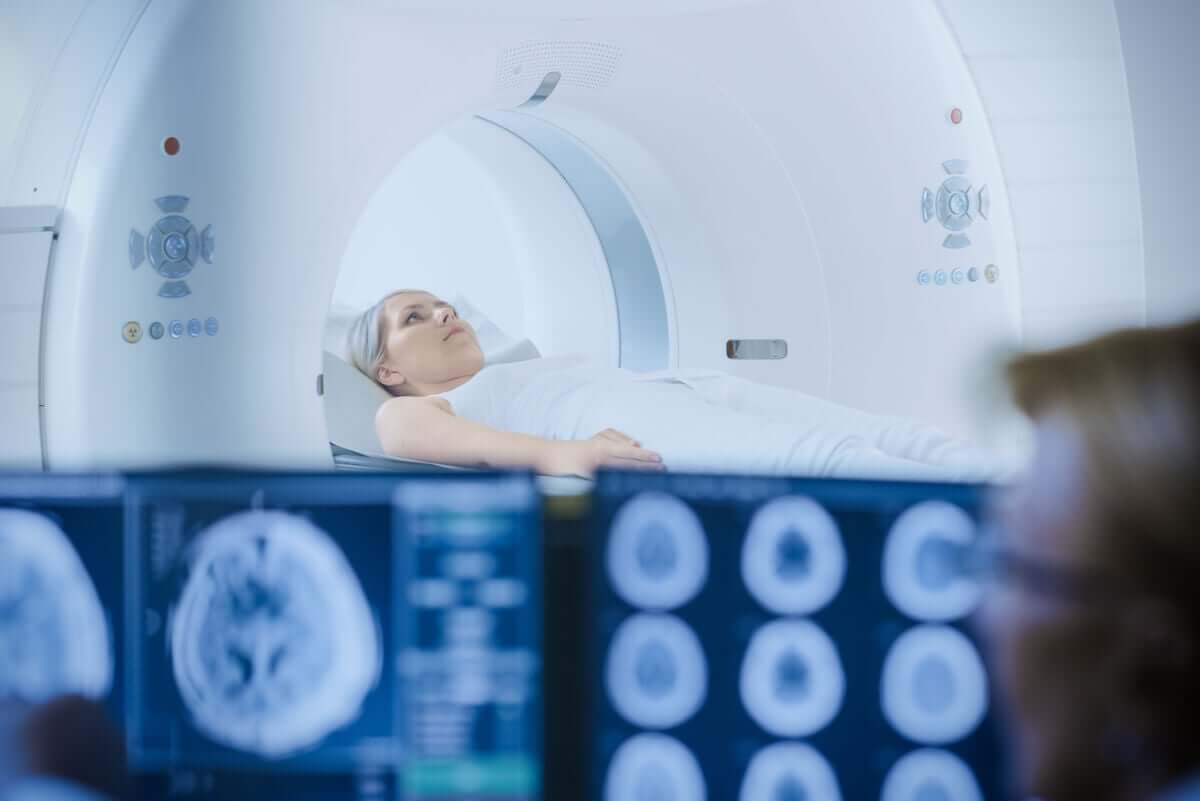What to Eat During and After Radiotherapy


Written and verified by the nutritionist Saúl Sánchez Arias
Cancers are complex diseases that require a precise treatment that combines prescribed drugs and diet. Both work together to improve the other, which, in turn, improves the prognosis. For this reason, in this article, we’re offering a series of diet tips for during and after radiotherapy.
In recent years, nutritional recommendations for cancer patients have varied a lot. Previously, specialists advised patients to follow a high calorific model, rich in carbohydrates. In reality, this does the opposite of what you want. Restricting sugars whilst including certain micronutrients in your diet seems to be effective in increasing the survival rate.
Your diet during radiotherapy
Your diet when you’re treated with radiotherapy can help to reduce its side effects and improve efficiency. For the latter, you can also follow certain regimes like the keto diet, especially when dealing with glucose-dependent tumors.
According to a study published in the magazine for Molecular Metabolism, restricting carbohydrates can be a useful addition to treatment among cancer patients, since it slows down or even stops tumor growth. That being so, it’s still important to consider a series of more precise recommended diets to avoid the side effects of treatments.

Dry mouth
Cancer treatments commonly cause the sensation of a dry mouth. To avoid this side effect, it’s essential to drink small amounts of water regularly. Furthermore, it’s necessary to avoid dry food. Using low-fat sauces or eating pureed food is a good idea.
Mucositis
Mucositis is the inflammation of the entire mucosa (the membrane that lines the inside of the body and covers the surface of the vital organs) in the digestive tract. In these situations, you must prioritize avoiding acidic foods like citrus fruits. Foods with a hard texture aren’t a good option either. Instead, you should opt for products that offer a light calming effect.
Difficulty swallowing
When dysphagia (difficulty swallowing) occurs, it’s best to reduce your meals to smaller portions to avoid large volumes of food. It may also be a good idea to remove hard solids from your diet. Red meat is a key example.
Lack of appetite
Many cancer treatments cause patients to lose their appetites, as an investigation published in Support Care in Cancer explores. In those instances, it’s important to divide the recommended amount of calories into several small meals.
Even though professionals would traditionally recommend foods that are rich in carbohydrates in such cases, this advice is currently under review.
Find out more: Drink Your Way to Calm With Stress-Reducing Beverages
Diarrhea
The last of the most common side effects that we’ll discuss in this article is diarrhea. To avoid this problem, it’s essential to consume fermented lactose and soluble fiber, present in apples, for example. Probiotics in yogurts are efficient in treating this intestinal condition.
When radiotherapy is applied directly to the stomach, it’s a lot more likely that diarrhea will develop throughout the whole process. To avoid this, you can follow a series of strict changes.
It’s fundamental to follow a diet low in residues and fiber. At the same time, you should moderate your intake of milk and fats, and increase the amount of liquid you drink.
You may also be interested in: What’s the Difference Between Prebiotics and Probiotics?
Your diet after radiotherapy
Once you’ve finished your treatment, it’s possible to begin following a series of dietary protocols in the hope of stimulating internal autophagic processes and improve general bodily functions. One of these is intermittent fasting, which has been linked to a lower risk of redeveloping cancers.
On the other hand, specialists recommend we reduce the amount of over-processed products we eat. Trans fats and additives in products aren’t beneficial for our health. It’s always best to choose fresh products like fruit and vegetables, meat, or fish.
At the same time, specialists advise against consuming alcohol and soft drinks. Both of these products often contain huge amounts of refined sugar or artificial sweeteners that make the body’s physiological processes more difficult.

Your diet during radiotherapy is essential
To summarize what we’ve mentioned in this article, one’s diet is capable of reducing the side effects of radiotherapy. Furthermore, it can help to improve the effects of the therapy itself as and when you include quality nutrients in your diet and limit harmful foods.
For this reason, if you’re diagnosed with any form of cancer, you should visit a nutritionist as part of your medical orientation. This professional can help to create a dietary plan that will work alongside the drugs you’ve been prescribed. This way, you can improve your prognosis and manage the illness better.
All cited sources were thoroughly reviewed by our team to ensure their quality, reliability, currency, and validity. The bibliography of this article was considered reliable and of academic or scientific accuracy.
- Weber DD., Aminzadeh Gohari S., Tulipan J., Catalano L., et al., Ketogenic diet in the treatment of cancer- where do we stand? Mol Metab, 2020. 33: 102-121.
- Elliott DA., Nabavizadeh N., Romer JL., Chen Y., et al., Medical marijuana use in head and neck squamous cell carcinoma patients treated with radiotherapy. Support Care Cancer, 2016. 24 (8): 3517-24.
- Szajewska H., Canani RB., Guarino A., Hojsak I., et al., Probiotics for the prevention of antibiotic associated diarrhea in children. J Pediatr Gastroenterol Nutr, 2016. 62 (3): 495-506.
- Antunes F., Erustes AG., Costa AJ., Nascimento AC., et al., Autophagy and intermittent fasting: the connection for cancer therapy? Clinics, 2018.
- Luna, Javier, et al. “Nutrientes y radioterapia: revisión de la literatura.” Nutricion hospitalaria 32.6 (2015): 2446-2459.
- Jiménez, MIC Ana Karen Medina, and MIC Marco Antonio López García. “LA DIETA CETOGÉNICA EN EL TRATAMIENTO DEL CÁNCER:¿ QUÉ DICE LA EVIDENCIA CIENTÍFICA?.” COMITE EDITORIAL: 1.
This text is provided for informational purposes only and does not replace consultation with a professional. If in doubt, consult your specialist.








